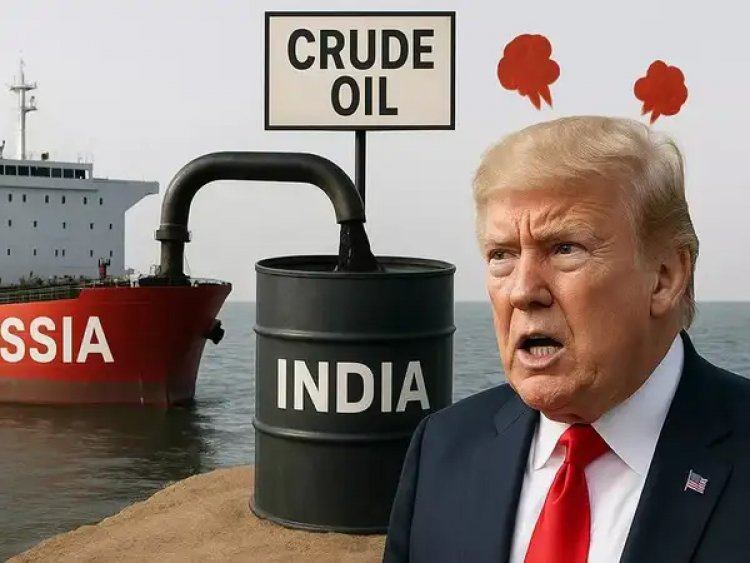India - Russia: Impact of Trump Tariffs on India’s Russian Oil Imports
Asia News Agency

Russian oil deliveries scheduled for September and October would give a clearer picture on the impact of Trump’s tariff tantrums over India’s hefty imports of Russian crude. On that count, initial tanker data does suggest a slump in loadings of Russian crude to India—likely to be discharged at Indian ports in September and October—from July levels.
Notably though, writers Sukalp Sharma (Senior Assistant Editor with The Indian Express and writes on a host of subjects and sectors, notably energy and aviation) “it may still be too early to say whether Trump’s pressure tactics have indeed led to a marked change in Indian refiners’ Russian oil imports. That is because a number of tankers laden with Russian crude are headed towards Egypt’s Port Said, which means that the possibility of these cargoes making their way to India cannot be ruled out.”
August deliveries of Russian crude hold steady
As of August 24, India’s Russian oil imports for the month were 1.6 million bpd, flat on a month-on-month basis, but down 24 per cent from June levels, per vessel tracking data from Kpler. Industry insiders have attributed the decline largely to a significant erosion in discounts on Russian oil.
So far in August, Russian crude imports into India have stayed relatively steady. But, writes Sharma “that’s less a sign of defiance and more about timing—most of these cargoes were likely locked in weeks earlier, in June or early July, well before any policy shifts came into play.” If refiners do start to adjust their buying behavior in response to sanctions talk, experts believe this won’t be reflected in the data until late September or October arrivals. “For now, it’s business as usual for Russian crude imports by Indian refiners, but with increased caution.”
Buying Moscow’s crude dictated by economic and commercial considerations
Meanwhile, India’s public sector refiners have publicly stated that they have not received any directive or indication from the government with respect to their Russian oil imports, and their strategy on buying Moscow’s crude continues to be dictated by economic and commercial considerations. The Indian government continues to maintain that the country will buy oil from wherever it gets the best deal, as long as the oil is not under sanctions. Russian oil, writes Sharma “is not under sanctions, and is only subject to a price cap imposed by the US and its allies that applies if Western shipping and insurance services are used for transporting the oil."
The additional Trump tariff of 25% thus, says Sharma “has had no bearing on Indian refiners’ Russian oil import strategy, and purchases continue to be guided purely by economic and commercial considerations, according to top officials at India’s public sector refiners.
Justifying the Indian solid stand
India solid stand that provoked the US penalty, writes Sanjeev Choudhary (Correspondent, ET) “was not about depriving Russia of war funding, but about pushing India to accept contentious trade terms, particularly opening its farm markets to American produce. From a purely energy perspective, India could have walked away from Russian barrels without much pain. Global markets are well-supplied, Brent crude has hovered between $65 and $70, and Russian oil is not under sanctions.”
The contrary argument is “cheaper Russian oil benefits a few strong refiners. But the unprecedented US tariff would hit numerous small exporters and their low-wage workers. Exports worth $60 bn would effectively face tariffs of 50% or more. Labour-intensive sectors like textiles and gems and jewellery could see exports collapse by as much as 70%, according to Global Trade Research Initiative (GTRI).
“…..Alternative markets may cushion some impact. But redirecting such large volumes is no easy task. Measures like tweaking GST or extending government support to exporters may provide relief, but won't fully offset the blow.”
India's stance, however, concludes Choudhary “is less about oil, and more about setting precedent. Standing firm signals that India will not be strong-armed, even if that means near-term pain. The weak spot in India's stance is that its arguments - about energy security and price stability - are shaky. What strengthens its hand is something different: recognising the penalty as a blunt bargaining tool, not a moral crusade.”
















